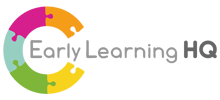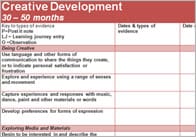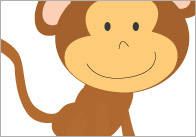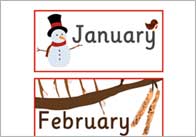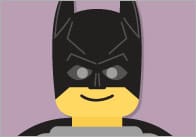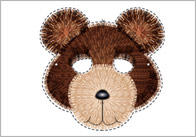EYFS Guide for parents & early years professionals
Personal, Social, Emotional Development
– Encourage your child to say please and thank you.
– Encourage your child to take his/her own coat on and off.
– When playing with your child, support them in sharing toys.
– Allow them to choose some toys themselves and reflect on opinions about these toys; e.g. this is my favourite doll/care.
– Ensure that your child is able to go to the toilet unaided.
– Try to support your child in taking turns with others.
– Encourage your child to talk about their feelings.
Knowledge and Understanding of the World
– Talk to your child about special times; birthdays, baptism and other key events in their lives and the lives of others they know.
– Encourage them to explore their surroundings; particularly in the outdoor area.
– Allow your child to observe animals and describe them.
– Allow them to use simple tools; such as a small hand trowel.
– Encourage them to feel different textured objects and describe; rough, smooth, soft etc.
Reading and Writing
– Allow your child to select books for themselves; ones that interest him/her. Picture books with repetitive and basic language such as those by Julia Donaldson.
– Encourage your child to ‘read’ what is happening in the pictures. Prompt them to tell you a sentence about what is happening.
– To increase vocabulary and identify sounds: play word games such as I spy.
– Sing alphabet songs and talk about the names of the letter and the sounds that they make.
– Make shapes of letters out of play dough; write them in sand, write their own name in the air etc.
– Encourage your child to sing/say songs and rhymes and tell you their own stories.
– Ask your child about words that rhyme, e.g. house and mouse.
Mathematical Development
– Practice counting groups of objects in pictures and stories; pose questions such as how many altogether? Which number is one more?
– Count out loud with your child saying the names of numbers clearly.
– Show numbers to your child (perhaps on number cards).
– Sing songs or rhymes with numbers in them; 10 In The Bed, 5 Little Ducks, 10 Fat Sausages etc.
– Read stories with numbers in them, e.g. The Very Hungry Caterpillar.
– Use mathematical language; add, take away, number names.
– Count using fingers.
– Point to and say numbers around the house.
– Encourage children to identify shapes around them; do a circle spotting hunt, square spotting etc.
– Apply mathematics to real life; shape, money, amounts of objects etc.
Physical Development
– Encourage your child to handle small and large equipment.
– Allow your child to use scissors and develop their skills.
– Allow your child to run, hop, skip, jump and find different ways of travelling.
– Play games such as follow the leader and change actions to develop motor skills and coordination.
– Discuss changes to their bodies after exercise; heart beating faster, feeling hot etc.
Creative Development
– Allow your child to listen to and sing songs and rhymes.
– Engage in role play with your child.
– Explore different media; paint, pencils, crayons.
– Using scissors and glue; encourage cutting and sticking activities.
– Dance to songs and make up actions to complement; e.g. Wheels on the Bus.
Popular Teaching Resources
Stay Up To Date
Sign up for our newsletter and we’ll let you know when we create new early years resources.
